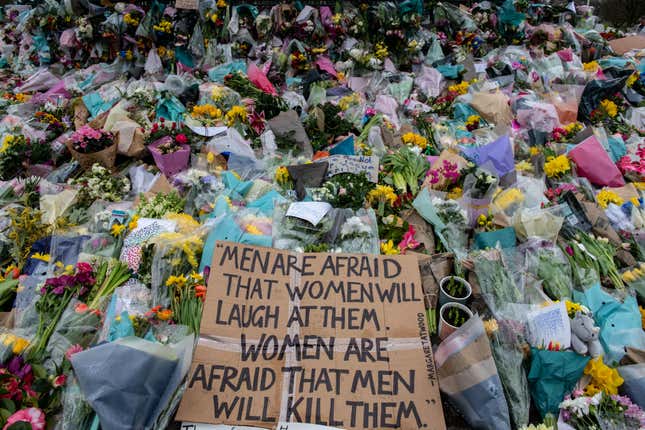The UK Endorsed A Tracking App for ‘Women’s Safety,’ and Women Are Pissed
The app will share data with police, supposedly to help protect women from violence, despite how Sarah Everard was killed by a London officer last year.
EntertainmentEntertainment

In the wake of the police killing of Sarah Everard in London last year, the UK’s Home Office—the ministerial department responsible for immigration, security, and law and order—has endorsed an app that tracks women’s journeys home and will partner with police “to establish problem areas that may need more resources,” The Guardian reports.
The Home Office’s backing of the app, Path Community, has predictably drawn intense backlash from women’s rights activists, for a number of obvious reasons.
According to The Guardian, Path Community, which is currently being trialled by more than 500 users in the UK right now, including London police officers, “provides anyone walking home at night with a monitored route on their phone”— and if the walker moves more than 40 [meters] from the route or stops for more than three minutes, the app asks if they are OK.
“If there is no reply, nominated ‘guardians’ receive a notification on their phones to say there has been a deviation,” The Guardian explains. They can then check on the person in question and alert the police if they are unable to do so.”
-

-

-

-

-

-

-

-

-

-

-

-

-

-

-

-

-

-

-

-

-

-

-

-

-

-

-

-

-

-

-

-

-

-

-

-

-

-

-

-








































